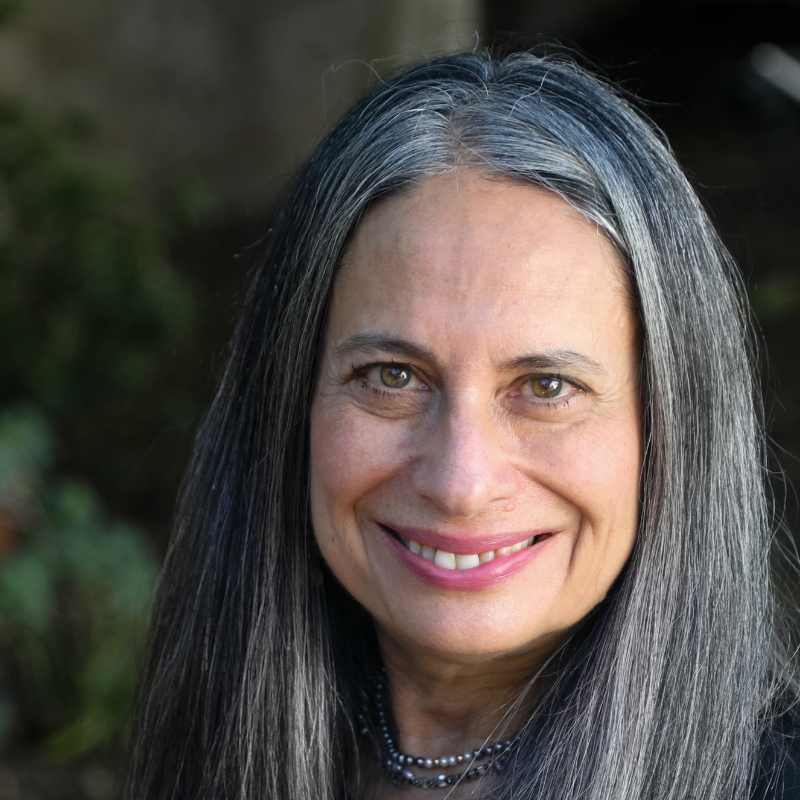October 7 shook us to our very core, raising profound questions about the place of Jews and of Israel in the world. Are Jews and Israel to be eternal pariahs? Is the problem of antisemitism insoluble? How do we create legitimacy for ourselves? But October 7, and the virtual civil war over the judicial reform in Israel that preceded it, also prompted important self-reflection questions. Is Israel the country that represents the key Jewish values we dreamed of? As a Jewish and democratic state, what does Israel owe its minority populations, in particular the Palestinians who are citizens within the Green Line and those living stateless in the occupied West Bank? This moment is an auspicious time for us to contemplate these matters as we are in the month of Elul leading up to the High Holy Days, a period in which to engage in an accounting of our souls.
This week’s Torah portion, Parshat Nitzavim, which is read right before Rosh Hashanah and during Yom Kippur, concerns the renewal and reaffirmation of our covenant with God. Elsewhere, at the center of this covenant is the injunction that we be a holy people by emulating God’s holiness. (Leviticus 19) What does it mean to be holy? It means to pursue justice and to treat others as we want to be treated. It means to care for the orphan, the widow, and the stranger, those who are most vulnerable in our society. In Nitzavim, God’s covenant is made with every single person in the community, from the leaders to the very least among them — “from wood chopper to water drawer.” (Deuteronomy 29:10) And, crucially, it is also made with “the stranger within your camp.” The “stranger” — the non-Israelite or non-Jew — is a member of the larger community, not to be left out, not to be mistreated or exploited.
Find more commentaries on Nitzavim.
The stance taken by the people in Nitzavim as they reiterate their commitment to God is significant. As Rabbi Joseph Edelheit explains:
Although the word nitzavim is usually translated as “standing there”…[t]he verb implies something very different than omed, which also means “to stand.” Nitzav suggests an act of will, a physical statement of hineini — “Here I am, prepared to respond to Your call.” (“Torat Hayim,” Nitzavim/Vayeilech, “Standing Still So We Can Go into the New Year,” 5757)
We are to actively interrogate the society we have created to ensure it meets the standards we have set for it.
As several commentators have noted, the root “shuv” is repeated seven times in this portion, suggesting that we are to return again and again, year after year, to the principles articulated in our relationship with God. We must constantly ask: Have we created and sustained an equitable society, one that cares for its poor and one that offers equal rights to all? Do we privilege certain groups of people over others? Do our leaders place the good of the country ahead of their own personal gain? These are matters that are never finally resolved. We must continuously strive to implement justice, as it is so easy to backslide when our attention and our resolve falter.
Find more commentaries on the Israel Hamas-War.
Rabbi Sally Finestone points out that this is an ongoing process that involves a give and take with God:
…we should also note that not every use of the root shuv in our passage refers to the returning of the human heart and mind; in several verses, it is the Divine heart and mind that is doing the returning… This turning is not teshuvah but ge’ulah, “redemption”; it is the divine response to the sincere turning back (returning) of God’s people to their Creator… [We] find a pattern of acts of returning followed immediately by redemption, followed by more returning, followed by more redemption. It is like a dialogue of the human and the Divine responding to each other. (“Torat Hayim,” Nitzavim/Vayeilech, “Repentance and Redemption: Who Makes the First Move?” 5759)
Our task is never-ending. Even during a time of war, when we are at our most vulnerable, we must still check ourselves to see if our conduct is as moral as possible. Are we fighting a just war justly? Do we have a plan for the “day after” that will offer dignity to both sides? We should not avoid these questions or their tough answers. As Rabbi Tarfon tells us: “The work is great…You are not required to finish the work, but neither are you permitted to desist from it.” (Pirkei Avot 2:15-16) Let us endeavor to return to the values that make us proud to be Jews.”
Rabbi Suzanne Singer served Temple Beth El in Riverside, CA, for 15 years. In her retirement, she serves a monthly congregation in Temecula, teaches Introduction to Judaism classes, and is very involved in social justice issues in her community.

